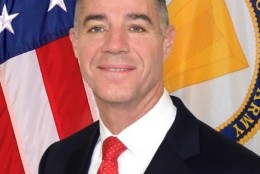DARPA
-
Welcome to the #FedFeed, a daily collection of federal ephemera gathered from social media and presented for your enjoyment.
September 29, 2016 -
The Air Force says it’s ready to start training at least some of its enlisted members to fly aircraft. Classes are set to begin next month, and the graduates would be the first enlisted pilots in the Air Force’s 69-year history.
September 26, 2016 -
OPM allowed each federal agency to decide how it would deal with the ongoing Metro Safetrack maintenance plan. Here's how they've responded.
June 08, 2016 -
Kelley Sayler, associate fellow at the Center for a New American Security, tells Pentagon Solutions drones work better in groups.
February 29, 2016 -
The Army uses Other Transaction Authority to buy cyber prototypes and hopes to use IT Box to deploy them broadly.
February 15, 2016 -
The Defense Department's advanced research agency is looking for technologies that fit third offset plans.
December 31, 2015 -
The Defense Advanced Research Projects Agency is thinking small. In seeking the next generation of technologies and the companies that invent them, it's not focusing on the standard Defense Industrial Base. Virginia venture capitalist Jonathan Aberman was on a road show with DARPA and Arlington County officials. He explains the new model for generating future government contractors on Federal Drive with Tom Temin.
December 14, 2015 -
The Department of Homeland Security is moving forward with the White House's "kill the password" initiative with an award for cell phone software that authenticates users without the use of passwords and pins.
August 28, 2015 -
DARPA launches its latest challenge program next week. It's called the Cyber Grand Challenge, and its goal is to completely transform the way computer network defense works. Over the course of two years, teams will try to build automated systems that can find and fix cybersecurity vulnerabilities so quickly that even the best human hackers in the world can't defeat them. Michael Walker is a former hacker who's now the program manager for DARPA's latest challenge. He talked about it with Federal News Radio's Jared Serbu during a demonstration day at the Pentagon last week.
May 28, 2014 -
The Cyber Grand Challenge, set to launch for the first time two weeks from now, aims to encourage the development of computing systems that can seek out cybersecurity weaknesses better than humans can.
May 22, 2014 -
Director of the Defense Research Projects Agency Director Arati Prabhakar says DARPA's budget wasn't decimated by sequestration, but it is being slowly eroded. The Office of Naval Research and the Marine Corps team up for technology demonstration. John Moniz, ONR program manager, says marines on the front lines can get real-time data using smartphones. At the recent AFCEA Mobile Symposium, Defense Information Systems Agency officials talk about mobile security possibilities.
December 04, 2013 -
Under sequestration, technology research has suffered disproportionately in the Defense Department. Leaders say those limited dollars need to be focused on making systems more affordable and taking advantage of commercial sector advancements.
November 19, 2013 -
The Defense Advanced Research Projects Agency has been at the forefront of some of the most innovative technologies ever created — including the Internet. But as budgets tighten, the agency's director says she's trying to figure out how to deal with an increasingly complex threat environment as less money flows into the research and development pipeline.
April 29, 2013 -
Defense agencies and services are pulling back hundreds of millions of dollars worth of grants and contracts. Impending furloughs will further impair DoD's ability to get money out the door.
April 18, 2013 -
The military, working through DARPA, is trying to develop its own marketplace of apps for helping troops in the field.
August 20, 2012










